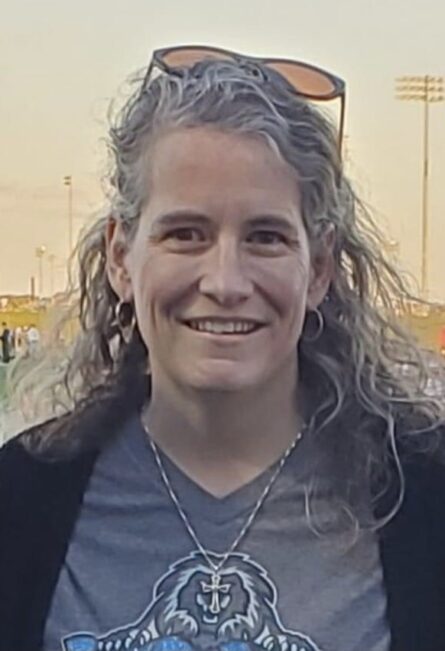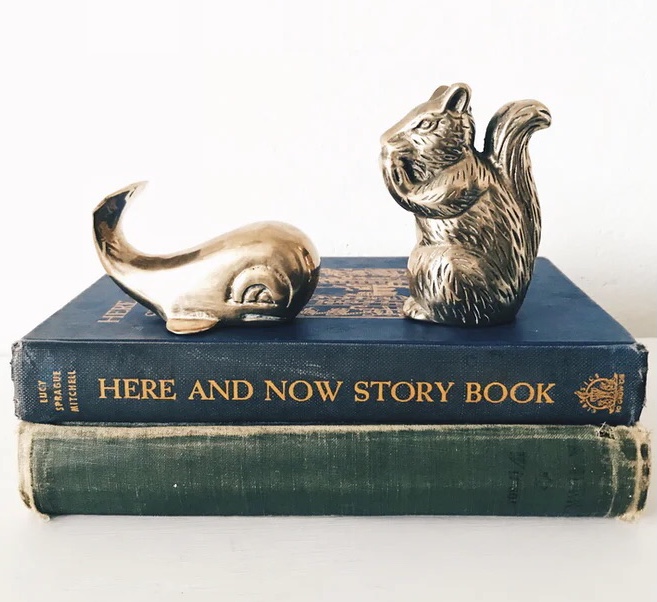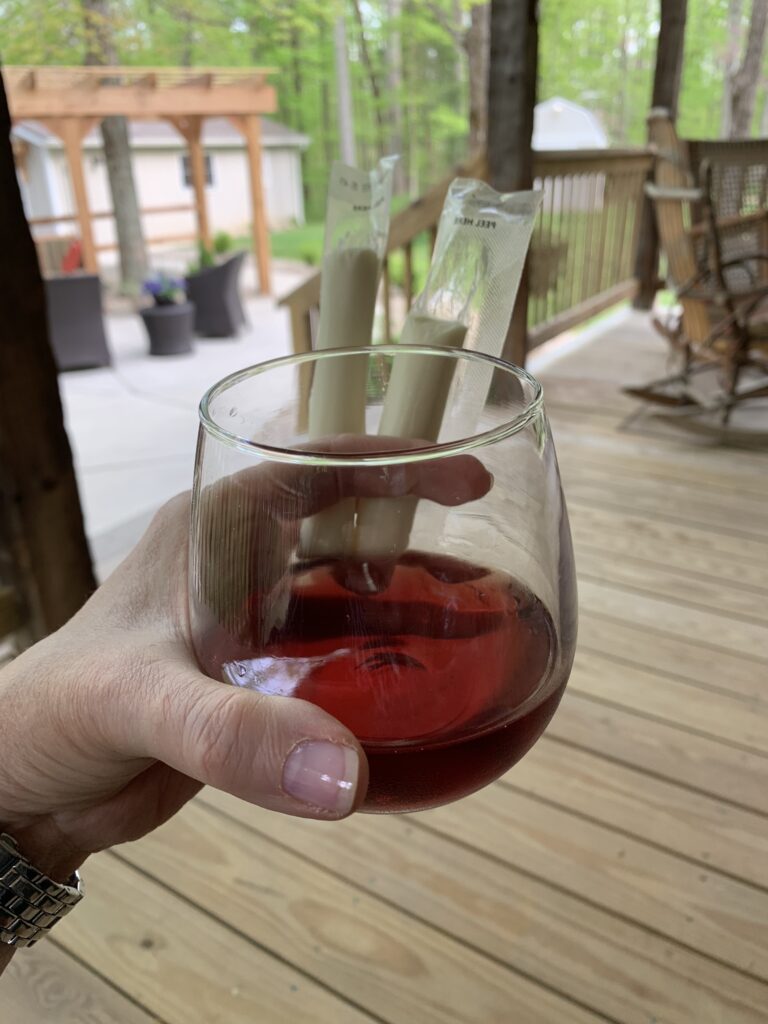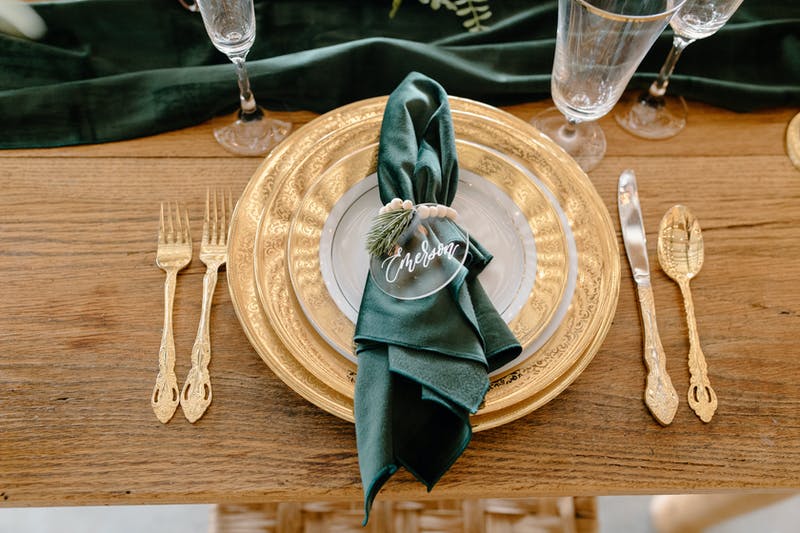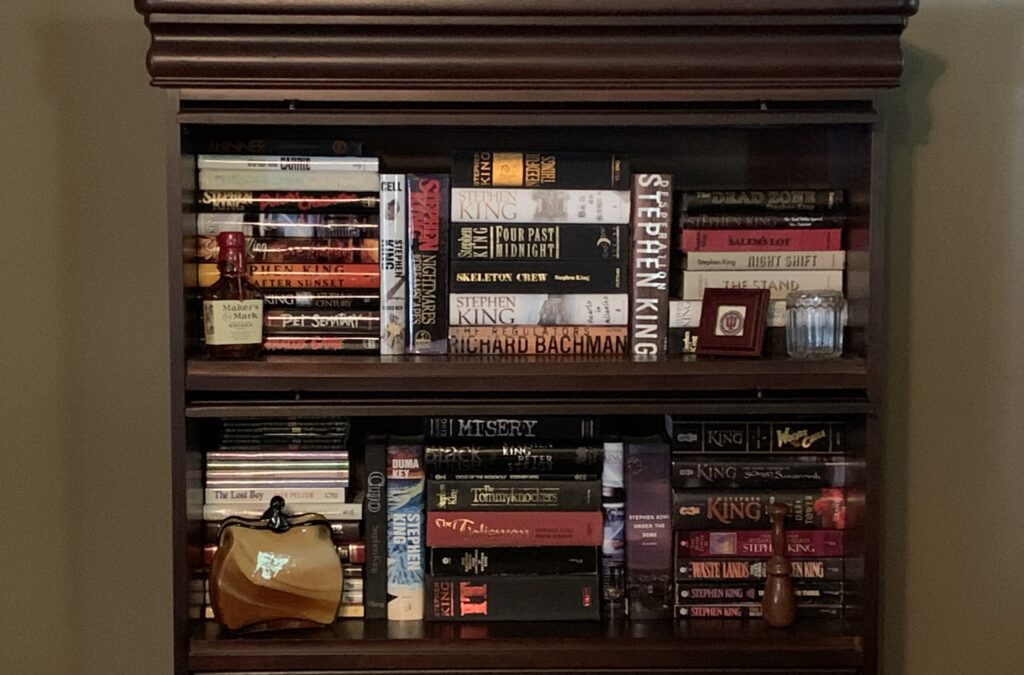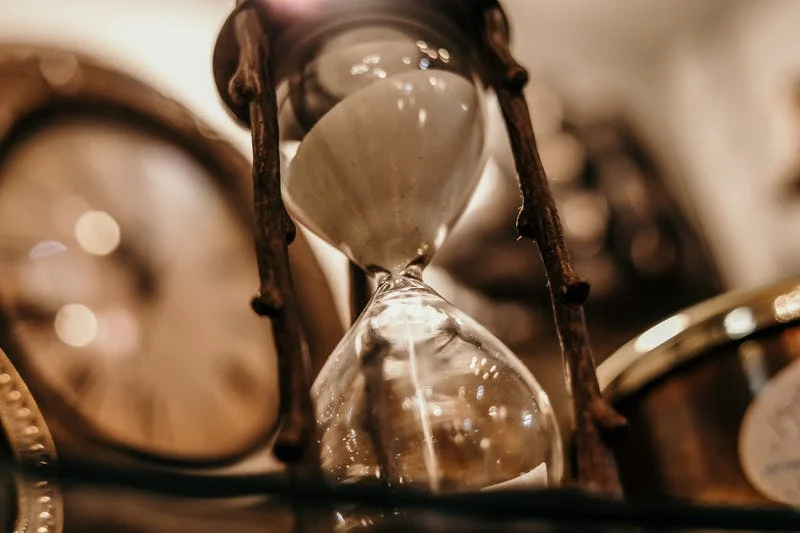There were three types of people Edna Withers despised…solicitors, nosy neighbors and relatives. That didn’t leave many on her list of tolerable folks, but she had no problem with the teller at Old Birch Bank or the bagger at the Thrifty Spend. And that pretty much covered it. She could do without most of the others. Which is why, when her doorbell startled her out of a late afternoon doze, she was more peeved than curious.
As she debated whether or not to just sit there until her unwelcome caller got tired of waiting, she heard what sounded like glass smashing. For the first time in a long time, the hair on the back of Edna’s neck bristled in fear. Someone was breaking into her house.
Fueled by anxiety-driven adrenaline, Edna’s 84-year-old body stood and quick-stepped over to the edge of the doorway that led to the front hall. Her breathing was so rapid and harsh that the crotchety part of her mind wondered if a heart attack would kill her before the intruder had a chance to slit her throat.
There was a mirror on the opposite wall that reflected a bit of the entry way. Edna peered into its glass and could see nothing amiss so, clutching the front of her housedress, she eased her head around the corner. The short hall and entry way were empty. There was no place for anyone to hide unless they found a way to get into the coat closet that had been locked – and the key lost – for over a decade.
Edna forced herself to take a deep breath and then stepped into the hall. She slowly made her way toward the front door, one hand still grasping her dress front while the other slid along the faded wallpaper for support.
With eyesight as sharp as a person’s half her age, Edna immediately noticed the corner of a slip of paper sticking out from under the front door. She also noticed the chain lock was still in place. With a cautious glance toward the closet, she continued on to the door and placed her right toe over the paper. Pressing her foot down, she eased it back and revealed some sort of flyer. At the same time, she glanced out the sidelight and saw that one of her flowerpots was shattered.
“Infernal advertisements,” she muttered as she strained down to retrieve it. Talking to herself was a practice Edna had perfected over the years. “Bad enough they bother an old lady with trash like this, but they vandalize property when no one answers the door. Got to be a phone number on this thing. I’ll show ‘em what happens when you harass Edna Withers.”
Adrenaline gone, she straightened up and read the front of the ad as she carefully moved back toward the living room. Coming to a dead halt, Edna’s hands began to shake and she leaned against the wall…barely aware she was losing altitude.
2
The afternoon light had been reduced to dusky shadows by the time Edna came to. She found herself crumpled up against the wall in the hallway and there was a piece of paper clutched in her hand. Disoriented, she peered around, trying to make sense of what had happened. She looked down at the paper again and it all came back. Whimpering, she wadded the flyer into a ball and tossed it on the floor.
Although scampering was beyond Edna’s physical capabilities, she made an impressive effort of crawling the rest of the way into the living room. Laboring to breathe, she grabbed the chair arm and pulled herself up to a kneeling position. She cast a furtive glance at the paper wad in the hall and then heaved herself to her feet. A cold, clammy sweat bathed her forehead and made her sagging breasts stick to her chest. She swayed slightly as the room began to spin, but she grasped the back of the chair for support and regained some sense of stability.
“How can this be? No one knew about it. No one was there. No one,” she mumbled as she dropped into the chair, gasping when her inflamed joints protested. “I never told a soul. Not a single soul.” Hitting the heel of her hand against her forehead, she gritted her teeth and said, “Think back, Edna, way back. You must’ve let it slip. Sometime back when you still talked to people. But, who? Who would I tell? And why? No one was to ever, ever know.”
Without realizing it, Edna had begun to weep. Not a sob…just a soft, tearful moan that left her drifting off into nothingness.
3
Edna awoke to screams of pain emanating from her back and hips. The room was dark now but for the faint illumination from the small digital clock on the side table. It declared the time to be 2:13am. The sound of crickets filtered in through the open windows, and the cross breeze was still almost as warm as it had been during the day. Edna wasn’t one to turn on the AC unless it was blistering hot and now, sitting here drenched in sweat, she regretted that decision.
With an anguished groan, Edna managed to stand and make her way into the small kitchen just off the living room. Her medicine bottles stood in a tidy row on the windowsill above the sink. Having convinced the druggist years ago not to use those blasted childproof caps, she popped the lid off the bottle containing her pain medication and dry swallowed two pills. She then lumbered back through the living room and entered the tiny bathroom. Trembling fingers flicked on the light and, momentarily blinded by the fluorescent attack, she stumbled against the toilet. Steadying herself, she lifted the hem of her housedress and gingerly sat on the seat.
Once that business was finished, Edna shuffled to her bedroom. Without bothering to turn back the spread, she curled up on top of the covers and immediately fell back to sleep.
4
“Wha…what is it? Who’s there?” Edna sat straight up in her bed and hugged herself tightly, her heart jackhammering through her chest. She stared into the darkness and willed herself to be still. She listened. There was nothing but the hitching sound of her own breathing, so she slowly got up and crept out of her room. The living room shades hadn’t been drawn as they were in her bedroom, and the faint light of dawn filtered in through the window.
Edna looked around the room and then on farther into the kitchen. Every shadowy shape was familiar. Heart still thumping, she tiptoed through the living room and peered around the corner into the hallway. Empty. Or almost empty. There on the floor, just inches from where she stood, was the wad of paper.
Edna’s eyes filled with tears as she carefully bent to pick it up. “Time to face the music,” she said to no one. “Pay the piper. Strike up the band.” She started to cackle and then collapsed on the floor, hiccupping, tears streaming down her lined cheeks. “Oh my, oh my, oh my…” She smoothed the paper out over her outstretched legs. “There it is, for all to see. Edna’s sin.” She leaned her head back and shook it side to side as her cackles took on a slow crescendo.
Edna’s laughter died as suddenly as it started and, ignoring the stabs of pain, she got to her feet and made her way into the kitchen. Tossing the paper on the counter, she opened the refrigerator and took out the orange juice. She got a glass from the drainer and filled it half-full. “Shaky ol’ fingers’ll slop it everywhere if I pour too much. Ain’t that right?” she asked the empty room. She grabbed the flyer again and sat down at the kitchen table.
“Well now, let’s take a good look at this.” Edna flattened the paper as best she could, staring at the picture and what was printed above it. “Yep, it’s all there. Everything spelled out in just a few words. How many of these adverts were passed out around town? Probably hundreds. Thousands, maybe. And so now everybody knows. I was crazy to ever think I could keep it a secret.”
Edna quickly glanced at the other side of the flyer. There was something printed there, too, but she didn’t bother to read it. Nothing it said would be news to her. “Almost made it, though. Thirty years before they caught on.” She struggled up out of her chair and turned toward the kitchen. “Wonder how they found out? Don’t matter, I guess. It’s done now, that’s for sure. It’s done and so am I.”
Edna walked to the sink and stared out at the pond beyond the back yard. She could just barely make it out in the early morning light. Oh, how her Harold had loved that pond…fishing, skimming stones and feeding the ducks that chose it as their summer getaway.
He was mighty proud of it, too. Dug it himself during the tenth year of their marriage. He’d hauled in tons of rock from the riverside, spread it along the edge of the pond and then surrounded it all with weeping willow saplings. He even stocked it with bass and blue gill. That pond – half the size of a football field and 20 feet deep – was quite impressive for a backyard endeavor. If he’d ever loved anything in his life, it was that little body of water.
Harold spent a lot of time out there over the years. He even had a tiny boat he’d row back and forth just to feel the water flow underneath him. As a matter of fact, the last time Edna saw Harold, he was in that boat, frantically waving his arms and hollering for her to help him. His little boat had sprung some leaks, likely due to the holes Edna had thrust through its bottom with Harold’s awl. Just as she’d anticipated, it didn’t really start to take on much water until it had labored under Harold’s huge frame for a while. By then, he was sitting well out in the center of the pond. Seeing as how he’d never learned to swim, and he thought life jackets were for sissies, Harold was up the proverbial creek with a paddle that was about as useful as tits on a boar.
Momentarily transported back to that fateful day – the day after their 30th wedding anniversary – Edna recalled how she watched her husband from the kitchen window. Watched as he flailed about, teetering back and forth in his sinking vessel. Watched until the white tips of his fingers were the only things visible. Then they, too, disappeared beneath the water’s surface. She remembered reaching up to push an errant strand of hair from her face and wincing as her hand brushed against the newest bruise. Only a few hours had passed since that last beating, but her left eye had already swollen shut.
People talk about memories flooding back, but that wasn’t the case here. This one was always milling around in her mind, just under the surface. Funny how the sheriff’s office never did much back then about her husband’s “disappearance.” Edna was always too scared to press charges, but they all knew Harold liked to knock her around, and they were pretty sure she miscarried her only two pregnancies with a little help from his size 13 work boots. In those days, the good old boy network was alive and kicking in their little town and, when it came to domestic violence, the authorities generally turned a blind eye in hopes the problem would remedy itself. So, even though Harold Withers was officially listed as a Missing Person, they likely figured she was better off with him gone. Why rock the boat? No pun intended.
Now, as Edna pulled down the window shade, she felt more at peace than she had in three decades. Everybody knew now, and it was just a matter of time before they did more than merely ring the bell and stuff notes under her door. “That’s fine,” she sighed. “Let ‘em come. I’ll be waiting.”
Edna took her medicine bottles from the windowsill and carried them over to the table. Settling back into her chair, she lined them up in front of her.
“Well, now. Don’t we have a pretty bunch of pills here? We’ve got blue ones for the ol’ ticker, yellow ones for thick blood, purple ones for heartburn, pink ones to sleep and white ones for pain. All those happy colors. And always there when I need ‘em.”
One by one, Edna picked up the bottles and popped off each lid. They were all fairly recent refills and the contents filled her palm. But Edna was a tough one. She managed to swallow every last pill without draining the juice from her glass.
Picking up the flyer once again, Edna stood and – shuffling more slowly than usual now – she returned to her chair in the living room. She eased herself down, took the remote from the side table, and turned on the TV. “Oh, good,” she whispered. “The Today Show. I like that nice weatherman.” She let the wrinkled paper drop to the floor and hugged the remote to her chest while she smiled at Al Roker.
Six Days Later
“Man, Potts, I can’t believe this stench!” The young officer turned his face and gagged.
“Yeah, well, now we know why people around here have been putting up such a fuss on the mayor’s hotline.” Potts’ words were muffled from behind the handkerchief he held over his nose and mouth.
“Why do we always get the shit detail? That’s what I’d like to know.” The first officer was huffing out breaths like he was practicing Lamaze.
“Andrews, quit your bitchin’ and just ring the doorbell.”
“Okay, fine…don’t get your panties in a twist.” Andrews hit the button and then wiped his sleeve across the sweat that clung to his forehead. A mid-August sun beat down on the pair as they stood on the roofless porch.
When no one answered, Potts said, “Maybe the old lady’s asleep. Try again.”
Andrews held his finger over the button, hearing the doorbell chime repeatedly until he let up. They waited an interminable three minutes and Andrews turned to the other officer. “There’s no answer. Let’s just let ourselves in and get this over with.”
Potts nodded and stared expectantly at Andrews. Andrews stared back. Potts tilted his head to one side and said, “Well, are we gonna stand here making googly eyes at each other all day or are you gonna open the lock?”
“What? I don’t have the kit. I thought you had it.”
“Jeez Louise! So, what…we have to go back to the station and get it?” Potts looked heavenward and sighed. “I just want to get in and get out and go have a damn beer!”
“Fine, fine, I’ll bust the sidelight. We’ll tell Chief it was already like that when we got here.” Andrews bent down and picked up a loose brick from the step.
Looking down at the ceramic shards near the door, Potts said, “We can chalk it up to vandals. Looks like somebody already did a number on one of her flowerpots.”
“Probably just a cat or something. Stand back.” Potts moved to the edge of the porch while Andrews tapped the corner of the brick against the glass. It broke easily. “Wow, a gust of wind could’ve cracked that sucker.”
“Single pane, but no surprise there. It’s a pretty old house.” Potts stepped back up behind Andrews and said, “Okay, no stopping now. Let’s get in there.”
Andrews knocked aside a few glass fragments and reached through the window to undo the locks. He swung the door in and both men staggered as the putrid air swirled around them.
“Aagghh…oh, man…where’s my rag?” Potts covered his face again and, blinking back tears, he stepped into the hall. Andrews followed.
“Mrs. Withers?” Potts called. “It’s the police, Mrs. Withers. We got a call that you might need some assistance. Are you able to answer?”
No response. But then, they didn’t expect one. The steamy, fetid air surrounding them didn’t bode well for any signs of life.
Andrews and Potts walked down the hall to the living room and there, bathed in warm sunlight, sat Edna Withers. Purple, swollen twice her normal size and smiling. Edna was as dead as a skunk on a highway and smelled twice as bad.
“Well,” Potts mumbled from behind the kerchief as he walked to the kitchen, “let’s call it in. The coroner can take over from here. And it doesn’t look like foul play. Check out these prescription bottles. All empty and, from the dates on them, they should be at least three-quarters full. Looks like Old Lady Withers sent herself home to the Big Guy in the sky.”
“Yeah, looks like,” Andrews said. “Hey, what’s this?” He bent down and looked at a piece of paper on the floor by Edna’s foot. “Looks like some kind of flyer.” He read it and shook his head. “Huh. Wonder what it says on the other side.” He started to pick it up when Potts yelled at him.
“Don’t touch that! It’s evidence. You know we can’t rule out homicide until the coroner gives the green light.”
“Fine, I won’t touch it. I’ll just flip it over with my shoe.” He slipped his toe underneath the paper’s edge and exposed the other side with a quick flick of his foot. “Oh, big whoop. No mystery here. Didn’t have anything to do with Mrs. Withers buying the farm.” Andrews started for the front door. “You’re right. We need to get this called in, but let’s do it from the car. I gotta get away from this smell!”
As they were heading down the walk, Potts asked, “So what was on that flyer, anyway?”
“Nothing pertinent. It was just some cheap ad. The front had a picture of a guy up to his eyeballs in water, and it said ‘It’s no secret. Everybody knows.’. The other side said something like ‘Drowning in debt is no fun. Let Johnson Finance save you.’ It sure didn’t cause that old lady’s death.”
“I don’t know,” Potts said as he opened the driver’s side door. “Maybe that is what killed her. You know…death by junk mail.” He waved his hands around his head and whistled a very bad rendition of The Twilight Zone.
Andrews rolled his eyes and both men laughed as they climbed back into the cruiser.
